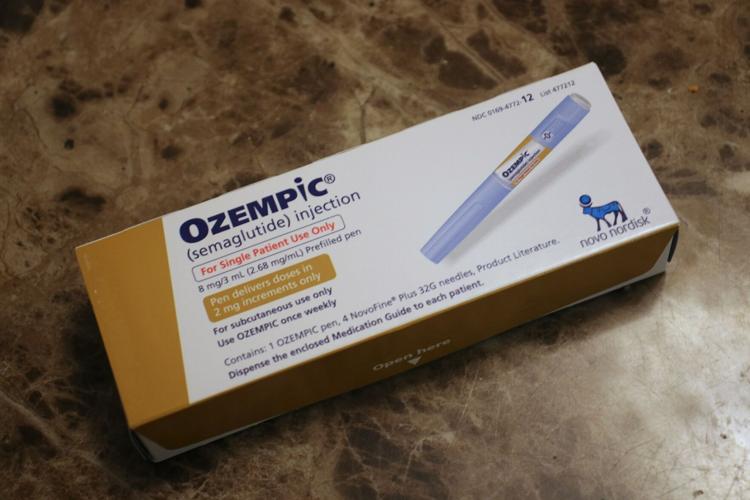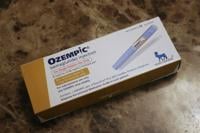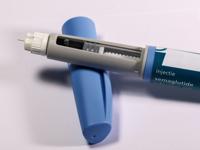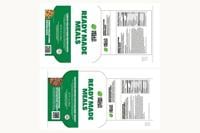
David Trinks
By Stephen Beech
Weight loss drugs such as Ozempic could be used to treat drug and alcohol addiction, suggests new research.
The pills - usually prescribed for diabetes or obesity - have shown "promise" in treating alcoholism and narcotic disorders, say American scientists.
The therapies - known as Glucagon-Like Peptide-1 Receptor Agonists or GLP-1s - include semaglutide which is sold under the brand names Ozempic, Wegovy and Rybelsus.
Lead researcher Dr. Lorenzo Leggio, of the National Institutes of Health (NIH), Bethesda, Maryland, said: “Early research in both animals and humans suggests that these treatments may help reduce alcohol and other substance use,
“Some small clinical trials have also shown encouraging results.”
Despite the high prevalence and consequences of alcohol and other substance use disorders, research suggests that less than a quarter of people received treatment in 2023.
Dr. Leggio said: "Current treatments fall short of addressing public health needs."
GLP-1 therapies have gained widespread popularity in recent years for their ability to tackle obesity and significantly reduce weight.

Haberdoedas
As well as its inhibitory effects on gastrointestinal systems, Dr. Leggio says GLP-1 has "key" functions in the central nervous system.
He said: "Among them, GLP-1R activation within the central nervous system curbs appetite and encourages individuals to eat when hungry and stop eating when they are full."
He says some forms of obesity have been shown to present biochemical characteristics that resemble addiction, including neurocircuitry mechanisms.
Dr. Leggio said: “Pathways implicated in addiction also contribute to pathological overeating and obesity."
With that pathway in mind, researchers have looked at GLP-1s as a "potential" therapy to address substance use disorders.
Preclinical and early clinical investigations suggest that GLP-1 therapies modulate neurobiological pathways underlying addictive behaviors, thereby potentially reducing substance cravings.
A trial with exenatide, the first GLP-1receptor agonist approved for diabetes, showed no significant effect on alcohol consumption, although a secondary analysis indicated reduced booze intake among alcoholics.

Haberdoedas
A more recent trial showed that low-dose semaglutide reduced laboratory alcohol self-administration, as well as drinks per day and craving, in alcoholics.
In rodent trials, several GLP-1 receptor agonists have been shown to reduce self-administration of heroin, fentanyl and oxycodone.
The studies also found that the medications reduce reinstatement of drug seeking, a rodent model of relapse in drug addiction.
Preclinical data also shows that GLP-1 receptor agonists reduce nicotine cravings in rodents, according to the findings published in the Journal of the Endocrine Society.
Initial clinical trials suggest the potential for the medications to reduce cigarettes per day and prevent weight gain that often follows stubbing out smoking.
Dr. Leggio and his colleagues caution that more and larger studies are needed to confirm how well the treatments work.
They say further research will help reveal the mechanisms underlying GLP-1 therapies in relation to addiction and substance use.
But that hasn’t dampened the optimism for new therapies to address substance use disorders.
Dr. Leggio said: “This research is very important because alcohol and drug addiction are major causes of illness and death, yet there are still only a few effective treatment options."
He added: “Finding new and better treatments is critically important to help people live healthier lives.”



















(0) comments
Welcome to the discussion.
Log In
Keep it Clean. Please avoid obscene, vulgar, lewd, racist or sexually-oriented language.
PLEASE TURN OFF YOUR CAPS LOCK.
Don't Threaten. Threats of harming another person will not be tolerated.
Be Truthful. Don't knowingly lie about anyone or anything.
Be Nice. No racism, sexism or any sort of -ism that is degrading to another person.
Be Proactive. Use the 'Report' link on each comment to let us know of abusive posts.
Share with Us. We'd love to hear eyewitness accounts, the history behind an article.